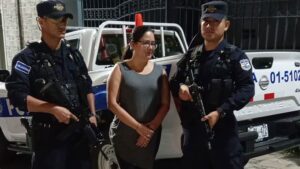[Tegucigalpa / Washington DC., August 2, 2024]
On July 26, the Inter-American Commission on Human Rights referred the case of Leonela Zelaya v. Honduras to the Inter-American Court of Human Rights (IA Court).
This case concerns the transfemicide of Leonela in Honduras and is being represented Red Lésbica Cattrachas and Robert F. Kennedy Human Rights. Recently, the representatives presented the brief of pleadings, arguments and evidence before the IA Court.
Leonela was a trans woman, sex worker, HIV-positive and living in poverty. Like many other women in similar situations in that country, she was the victim of numerous acts of violence and discrimination from a very young age until her murder.
Months before her death in 2004, Leonela had been arbitrarily detained and even tortured by state agents. The investigation was not only deficient but indicative of deliberate impunity in Honduras, for example, there was no crime scene examination, no autopsy, no witnesses were interviewed and her case file was lost for almost 14 years.
Leonela’s transfemicide occurred in a context of structural discrimination influenced by pressure from religious fundamentalist groups and tolerated by state authorities. The representatives intend to demonstrate how these groups influenced the approval of discriminatory and restrictive norms on the rights of LGBTTI people, which in turn, has been a determining factor for the violence they suffer to this day.
This is a historic opportunity for the IA Court to deepen its standards in relation to the enhanced due diligence that must be fulfilled for this type of hate crimes, not only in terms of investigation but also in terms of prevention.
Likewise, this international body will be able to make an intersectional analysis of Leonela’s experience based on her gender identity and other discriminatory factors. We are confident that the Court will issue reparation measures that will contribute to eradicate these forms of violence.
We call on the State of Honduras to accept its responsibility for the facts and to show its real will to build a more inclusive country that respects human rights without discrimination.



